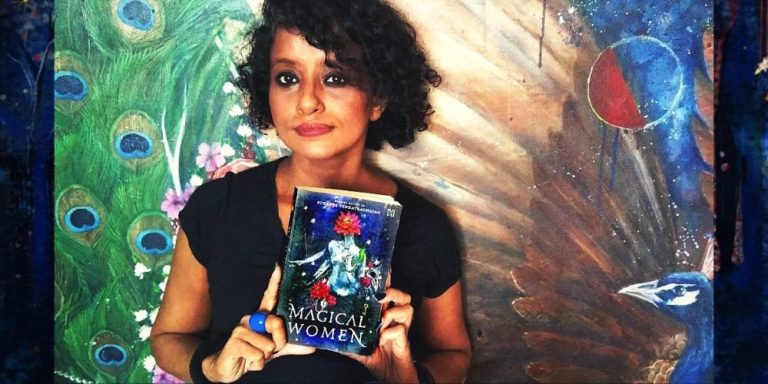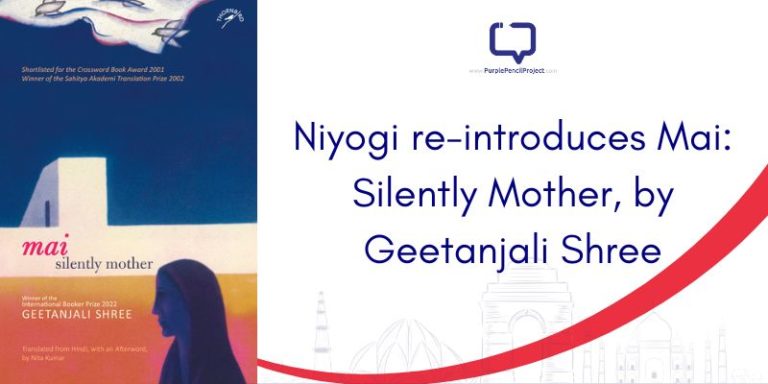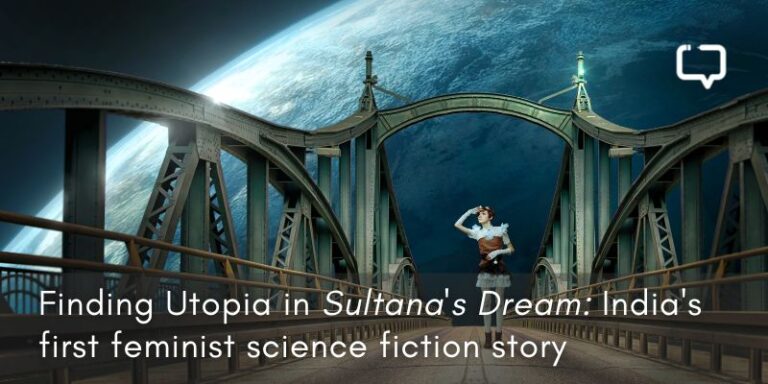Pooja Singh reviews Women Who Only Wear Themselves by Arundhathi Subramaniam (Published by Speaking Tiger, 2021)
Arundhathi Subramaniam’s clever genius made her unravel consciousness for her readers to approach literature from a spiritual perspective. A writer of strong wit, she has been an art critic, anthologist, performing arts curator, and poetry editor.
Women Who Only Wear Themselves is a collection of four brilliantly crafted essays that challenge the dogmatic expressions of the world. The flamboyant women who do not please the oppressive systems; present us with the courage to recognize inclusivity.
The book also flavors poetry at the beginning of each essay to compress the inner feelings and make the experience even more fulfilling for the readers to experience senses of emotions.
The Title
The title of the book has a feminist greet where we are made to think about women who charge themselves independently but not in isolation.
We encourage you to buy books from a local bookstore. If that is not possible, please use the links on the page and support us. Thank you.
Women and Their Journeys
The first essay “Clothed in Emptiness” is about Sri Annapurani Amma who does not surrender to worldly discipline and punishments, but instead chooses to electrify her own life. She refuses to wear clothes because why should a woman have to console herself and hide her karma in clothing? Her limitless and fierce character, questions the sane and insane binary on how we look at things from an objective point of view.
The insanity of an action or thought comes from a perceived notion that dictates us and represses our formation of ‘different’. “There are varieties of insanity normalized by the world. We don’t even notice these anymore”. The belief to live life by the constraints of logic and reason takes us further on the abyss of reaching truth.
But what truth are we choosing to believe in? The one that has been manufactured by the oppressive power structures?
The second essay titled “The Reluctant Guru” talks about the life of the mystical child prodigy Balarishi Vishwashirasini who began predicting futures and spiraled her way into the kingdom of gurudom.
“She is a woman who still speaks of herself as a process, not product; who hasn’t yet allowed an image to obscure her reality as a mystic”.
Recommended Reads: Discover Indian Mythological Women Writers that are a must-read!
The essay engages the reader to question the limits of language. The author writes, “The idea of offering sound to the divine appealed to me. I like the idea of the spoken word as a libation – a sensual and aromatic gift to the gods.”
To distance oneself from the written and spoken words, the language of sound has so much more to offer. The things in existence that are beyond the human intellect, how shall we define and limit its experience? It makes us interrogate whether language is something that is only verbalized. With the weeping generalizations that language constructs, it is our responsibility to look beyond the verbal and written forms.
The third essay titled “What it Takes to be a Redwood Tree” is about the exuberant writer-filmmaker Lata Mani who is an academician in the United States. Having countered with a fatal accident, her shaping of her spiritual life took a plunge. “
She did not discover it as a lofty philosophical idea. There was no flight into the Empyrean. No ‘top of the world looking down on creation’ brand of ecstatic high. No out-of-body experience.
Instead, Lata Mani discovered isness in and through her body”. Mani talks about how the chronically ill do not have a place in the world while building a space for the subaltern. The construct of the bourgeoisie’s dominant ideology; the dehumanization of women takes on a form of rebellion to voice the void to alter the life of despotism.
With India’s liberal and economic growth developmental plan, the social identities of marginalized groups have become a challenge to survive. The aggressively capitalistic society has made the boundaries difficult for the subaltern women to capture and make a space of their own in their country of birth.
Having been suggested individual capability to overcome the chaos, how shall a subaltern woman overcome the authority that does not see her beyond her socially disadvantaged state?
The fourth essay titled “The Leap into Monkhood” talks about Maa Karpoori who transcended from her married life into the realm of spirituality where an awakening in her yoga class happened to be a voice that called her.
Maa Karpoori talks about the intimacy of connecting with oneself that often gets misplaced in a marriage setting but she does not condemn knowing oneself in isolation. The reflection and vulnerability of tune with the process of life rather than making a product out of it marks an absolute spiritual knowledge.
“I have learned over time, however, that the lives of householder and monk aren’t as polarized as they seem. If you are committed to self-understanding, both lives entail a mix of freedom and discipline. It’s a bit like asking a poet which is superior- metre or free verse. Freedom and form are vital to both, so how do you answer that one?”
Between the Pages
The book subverts the political-ideological framework and makes us question our vision to reach an understanding of clarity. The mind has to be alive and truly be interrogated for its functioning rather than being dismissive of certain kinds of realities.
Favourite Quote
Women who do offer sops or greeting-card homilies, but a hard earned wisdom, as they navigate their lives of reinvention. Women of great, women of imagination. Women who do not offer conclusion, but continuum- glimpses of life lived out in the present continuous.
Women who know faith not by obedience, to theory or scriptural scholarship, but through lived experience. Quiet, daily experience. Women who have cast aside costume, women who refuse to wear borrowed plums- of passively inherited faith or examined piety. Women who wear- or seek to wear- only themselves.






















